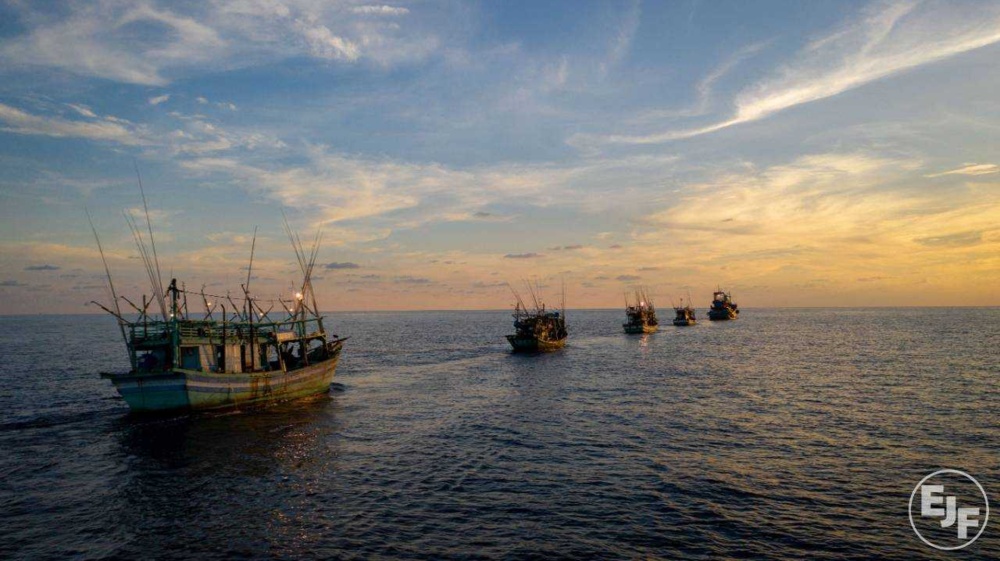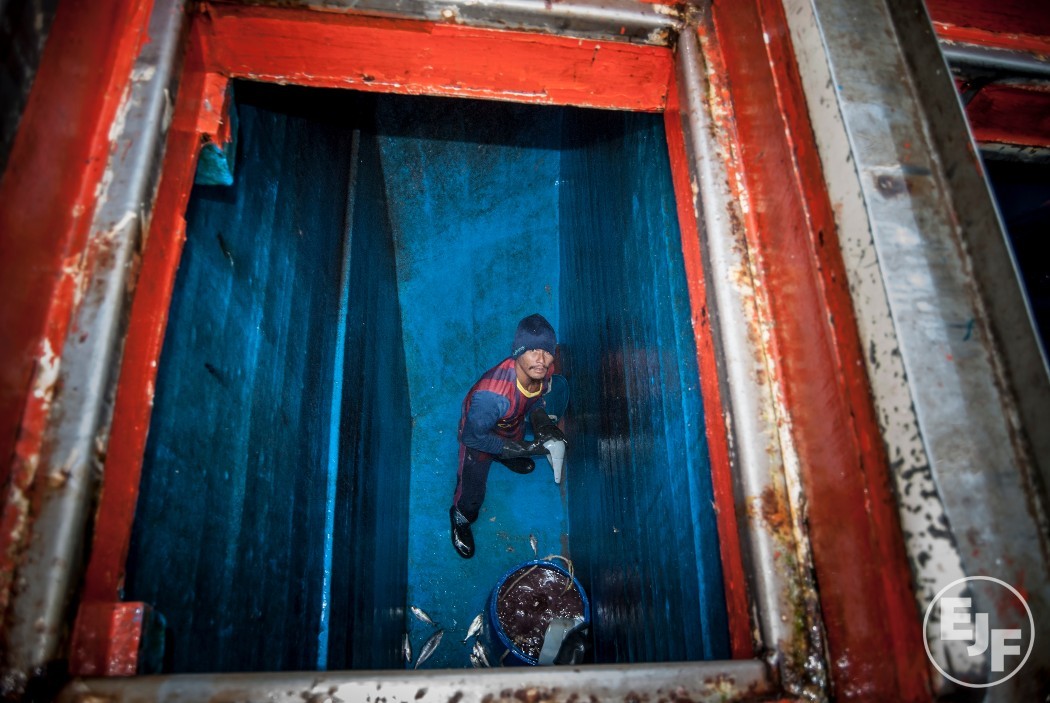
Rampant illegal fishing, child labour and grinding poverty: EJF report on Vietnamese fleet
Fish populations in Vietnam’s waters are so low boats are forced to fish illegally elsewhere to make a living, Vietnamese captains and crew told the Environmental Justice Foundation. Although new laws to prevent illegal fishing were enacted in Vietnam in 2018, EJF investigations a year later revealed that they are still not being implemented. The report also revealed that children as young as 11 are being put to work in dirty and unsafe conditions aboard long-distance fishing vessels. Gross overfishing, poor governance, and a shocking lack of transparency have created this human and ecological tragedy, says EJF.
Vietnam has one of the fastest growing fishing fleets in the world – increasing in size by over 160% between 1990 and 2018. This explosion in the number of fishing vessels has led to massive overfishing and rapid depletion of fish populations.
EJF’s new report details findings from surveying 239 crew from 41 Vietnamese fishing vessels that had been detained while fishing in Thai waters, and in-depth interviews with 45 crew from 20 vessels. The men interviewed were being held in Thailand after being caught fishing illegally in Thai waters.
The report shows that this crisis in Vietnam’s fisheries has been ‘exported’ as fishing vessels increasingly venture beyond Vietnam’s waters in search of fresh populations. Vessel captains spoke of how they were often encouraged by owners to fish in neighbouring countries’ waters and would openly discuss their upcoming trips to Thailand among the crew.
“We knew before even leaving the pier that we would have to go to Thailand to catch fish,” - Nguyen* a Vietnamese boat owner and captain who was interviewed in January 2018.
This rampant illegal fishing is being facilitated by child labour. EJF found that 7 out of the 41 vessels studied had a child aboard – some as young as 11. This is despite clear Vietnamese law that forbids any form of child labour aboard long-distance fishing boats.
Lack of transparency and governance
New laws to prevent illegal fishing were put in place by the Vietnamese government in 2018, however, comparing investigations before and after the laws came into force, EJF could find little evidence that the reforms were actually being enforced.
Vessels continue to lack appropriate markings and national flags while fishing. Key documents, including crew manifests, are still not carried on board – in direct violation of Vietnam’s revised regulations.
Vessel inspections on departure and arrival into port appear to amount to nothing more than a cursory document check and crew count. Such superficial investigations, without identification cards or passport verification, allows human rights abuse such as child labour to go unchecked. It also allows unauthorised crew transfers at sea, putting workers at risk of being trapped and enslaved, as they are rotated between vessels with little or no chance of escape.
Tainted supply chains
The report also identified a lack of any semblance of catch documentation or verification system, which makes it extremely difficult to determine the origins of the seafood. None of the fishers that EJF spoke to had ever used logbooks to document the fish they caught, potentially allowing seafood to be laundered into international supply chains.
This could mean that illegal seafood caught by slaves and children is on supermarket shelves across the EU and US.
Overall, EJF says that few of the European Commission’s recommendations for reforming Vietnam’s fisheries have been successfully implemented or enforced. This put the country at risk of a ‘red card’: a complete ban on seafood exports to the EU.
EJF’s Executive Director Steve Trent says: “Vietnam’s progress in combatting illegal fishing has been painstakingly slow over the last two years with only the bare minimum legislation and training regimes put in place. There is still a great deal of work that needs to be done. Nationwide vessel checks, transparency measures, and improved inspection regimes are urgently needed. We must, however, recognise that Vietnam is not alone in grappling with these problems, and eradicating illegal fishing and human rights abuse at sea requires international cooperation. Regional organisations, such as ASEAN, should create a taskforce to enable information sharing, joint enforcement action, and shared vessel monitoring and surveillance mechanisms.”
*names have been changed
SIGN UP FOR OUR EMAILS AND STAY UP TO DATE WITH EJF

